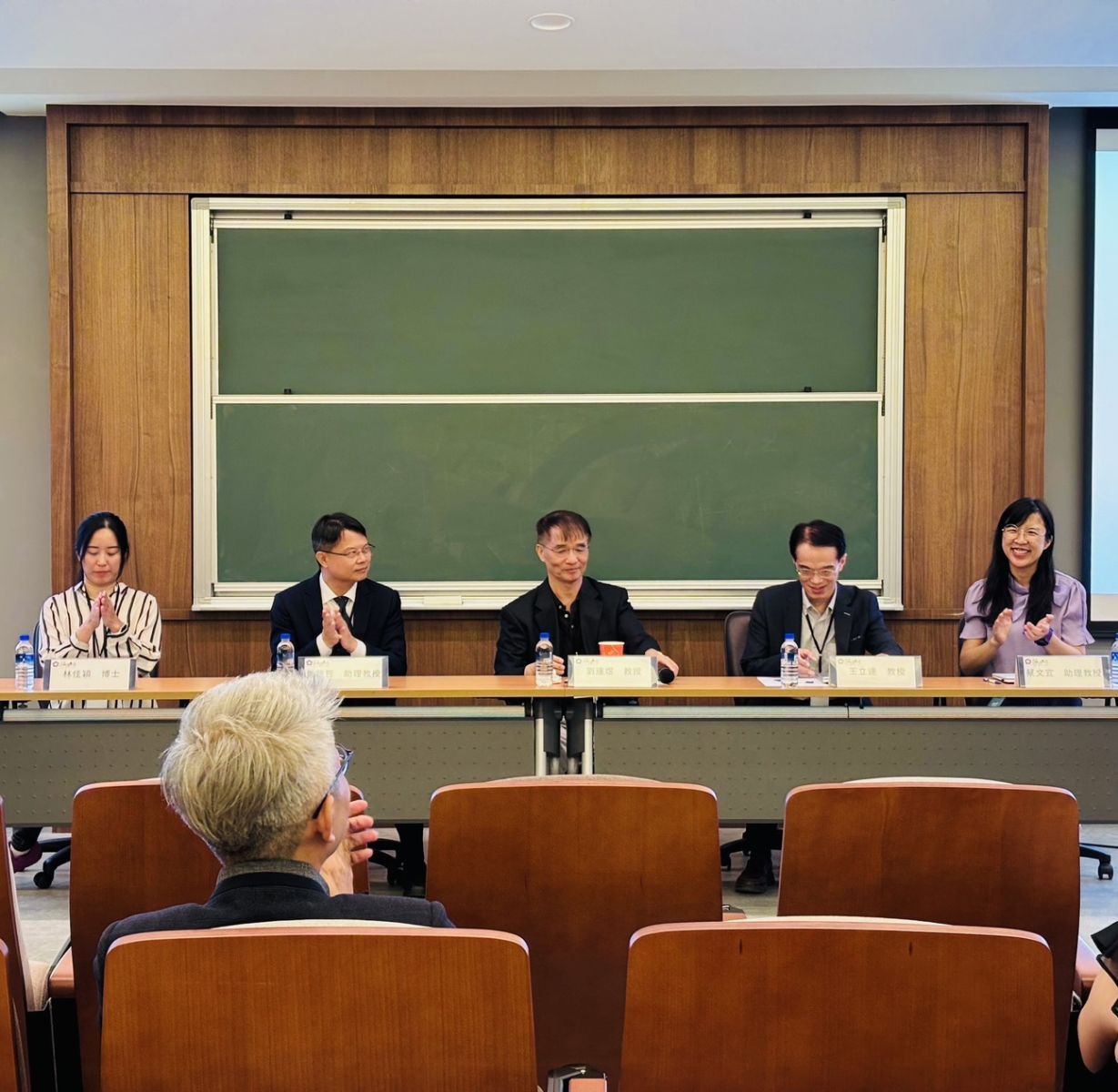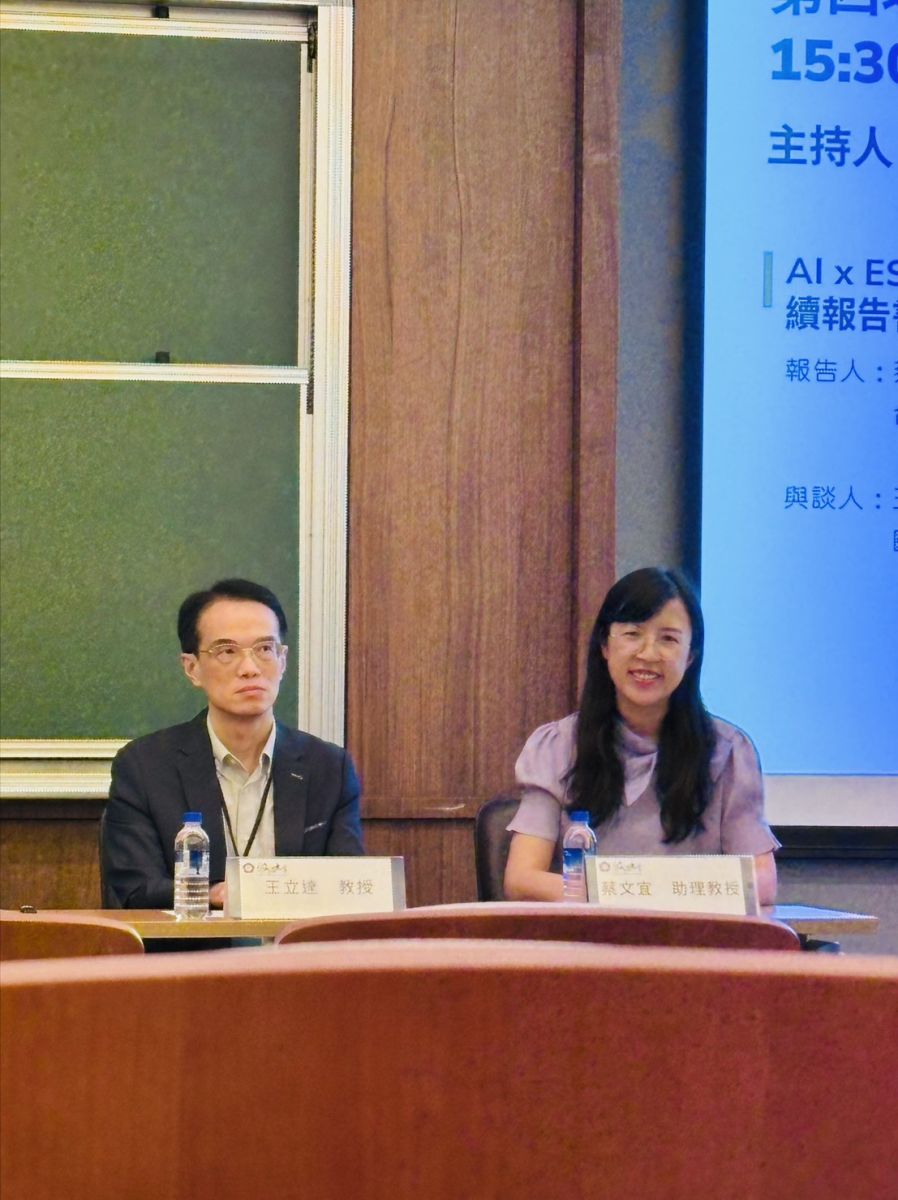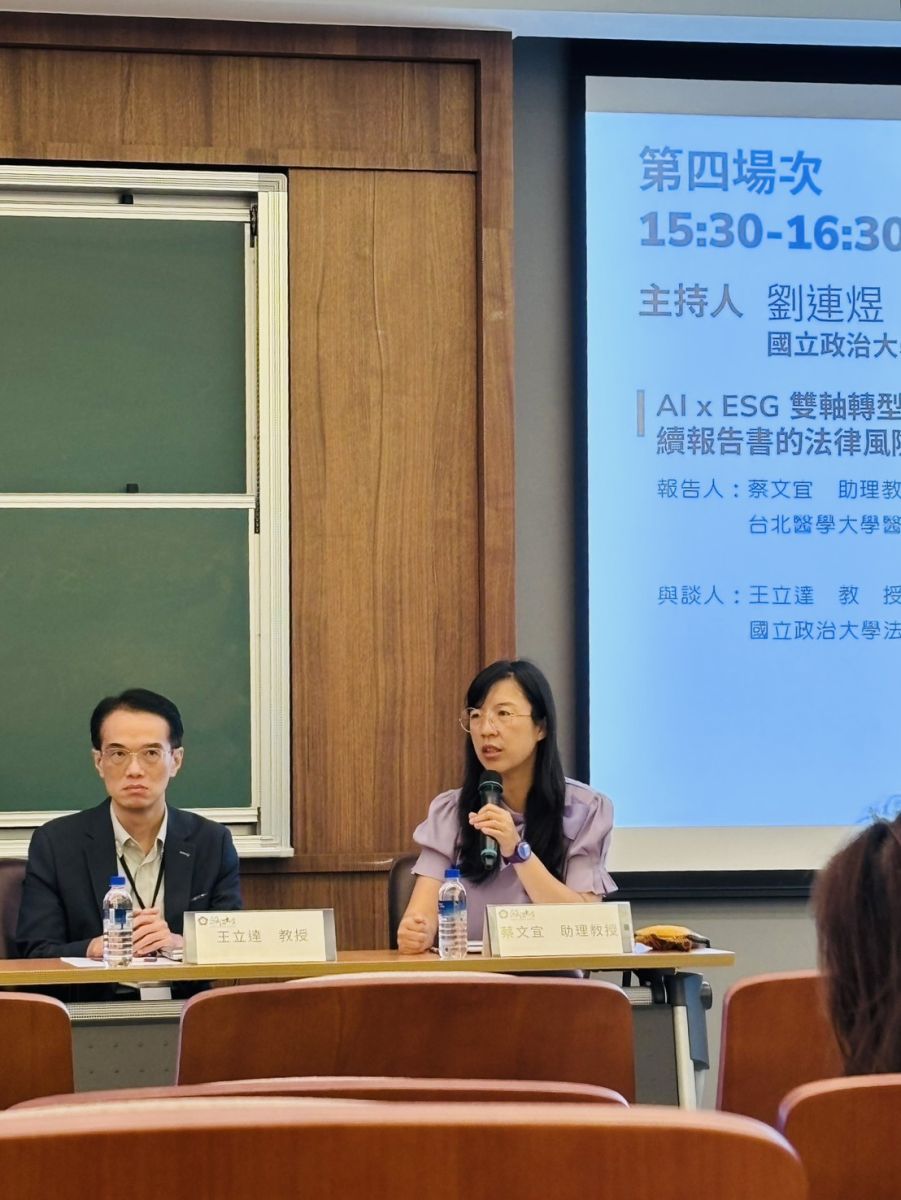

On September 13, Professor Gina, Tsai of our institute participated in the "2025 New Issues and Trends in Financial and Economic Law (IV): Social and Legal Challenges under ESG" seminar, hosted by the Center for Financial and Economic Law of National Chengchi University (NCCU) College of Law. She presented on the topic: "Legal and Governance Challenges of AI-Powered Sustainability Reports for Taiwanese SMEs: A Dual Transformation in AI and ESG".
The rapid advancement of digital technologies and artificial intelligence (AI) has significantly expanded their application in the field of corporate sustainability reporting (ESG reporting). Service providers now use digital technologies and AI programs to help companies automate the collection of complex data, transform unstructured information into useful insights, and compile data and reports according to specific sustainability standards. These services substantially improve the efficiency and accuracy of sustainability reporting.
However, small and medium-sized enterprises (SMEs) in Taiwan often face limitations such as lean organizational structures and constrained financial and human resources. This makes it difficult for them to effectively verify whether reports generated by digital platforms fully comply with relevant laws and regulatory requirements. This study aims to explore the potential legal risks and governance challenges that Taiwanese SMEs may face when using such digital sustainability platforms to manage sustainability information and prepare reports, and to propose policy recommendations to help them move toward the goal of sustainable corporate governance.
Her presentation emphasized three major legal challenges:
Risk of Misinformation and Greenwashing: If AI generates exaggerated or erroneous data, a company may violate regulations such as Taiwan's Fair Trade Act and Consumer Protection Act, constituting "greenwashing". The allocation of legal liability between the company and the AI service provider would become a point of contention.
Board of Directors' Supervisory Responsibility: According to the Company Act, the board of directors bears the ultimate supervisory duty for a report's authenticity. Even if the report is AI-generated, the board cannot use this as a defense to evade liability.
Leakage of Personal Data and Confidential Information: Uploading data containing personal information, such as employee salaries, or corporate secrets to an AI platform for report generation, if managed improperly, could violate Taiwan's Personal Data Protection Act and lead to data breaches.


